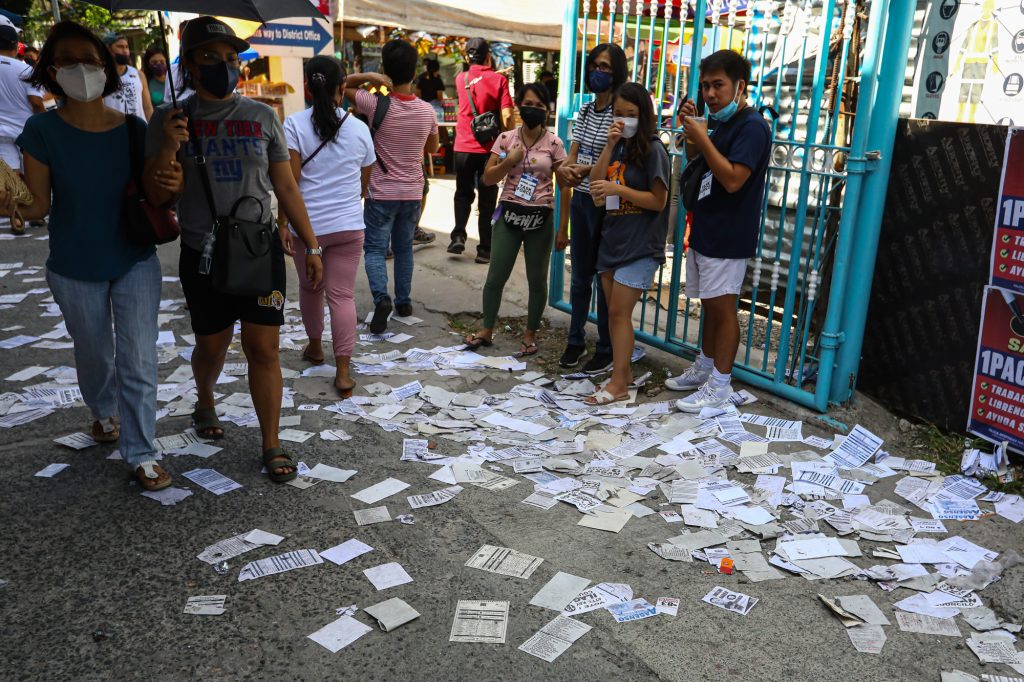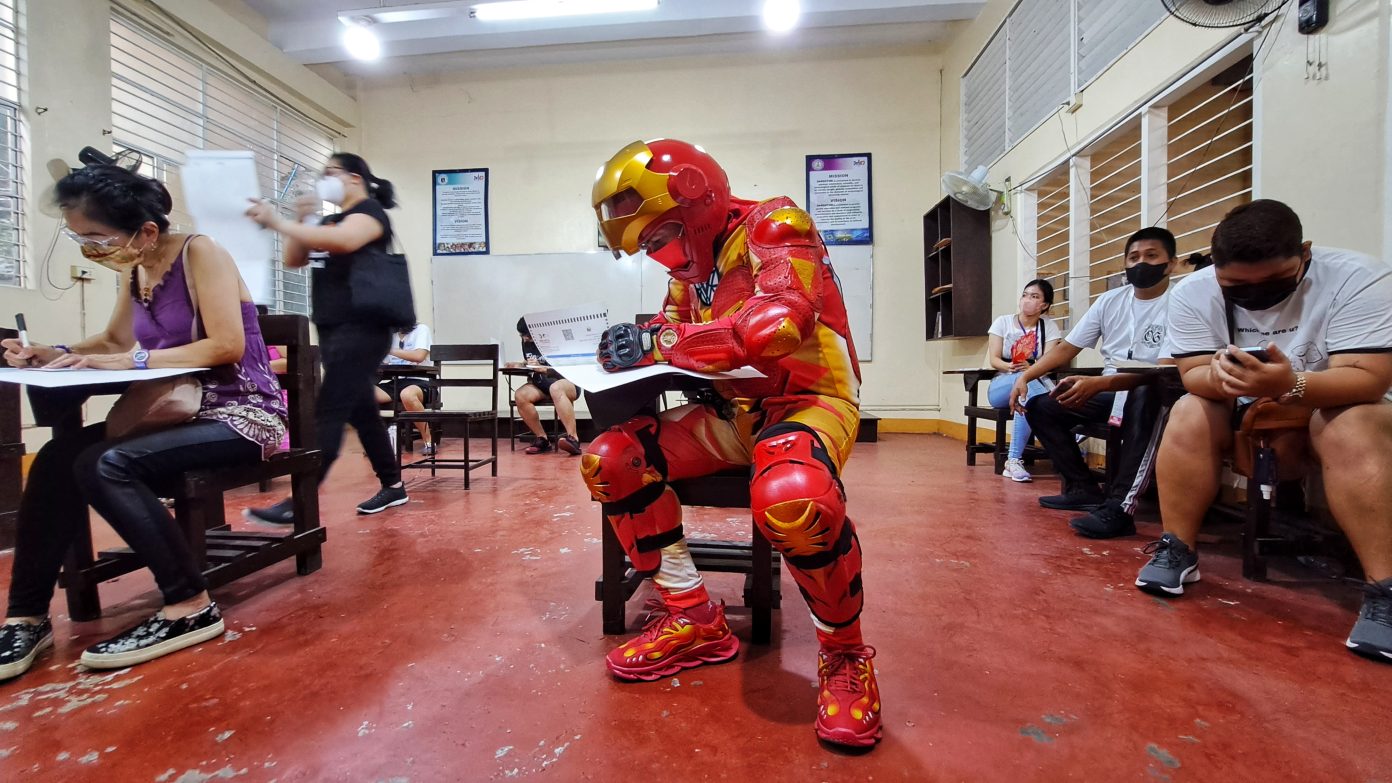A group of international observers said this year’s Philippine elections did not meet “free and fair” standards because of “prevailing conditions that robbed the voters access to reliable information.”
“The May 9 election did not meet the standard of ‘free and fair’ because voters were denied access to reliable information, access to the voting places without intimidation, and a credible vote counting system,” read the group’s statement.
The elections “were not free and fair,” said Severene de Laveleye, a member of parliament from Belgium and one of the mission’s commissioners.
“They were marred by a higher level of failure of the electronic voting system than ever before, along with rampant vote-buying, disturbing levels of state and military orchestrated red-tagging of candidates and parties including numerous incidents of deadly violence,” she said.
The presidential palace said it will leave it up to the Commission on Elections to prove that there are no irregularities in the May 9 national and local elections.
Acting presidential spokesperson Martin Andanar said he believed there was no cheating or other voting irregularities in the recent polls.
“Let us respect the outcome of the election and give chance to the winning candidates to fulfill their campaign platform,” he said.
“To dispel doubts of some quarters such as the Philippine Election 2022 International Observer Mission, which has been quoted as saying ‘the May 9 election did not meet the standard of free and fair’ we leave the matter to the Commission on Elections,” he added.
In a media briefing on Thursday, May 19, the International Coalition for Human Rights in the Philippines, which sponsored the international observers’ mission, said the elections suffered higher failure of electronic voting system, blatant vote buying, red-tagging, and violence.
The group began monitoring the elections from the kick-off of the campaign in February 2022. Observers were deployed on the ground from the first week of April in Central Luzon, the National Capital Region, Southern Luzon, Central Visayas, Western Visayas, and Mindanao.

De Laveleye said among the “basic standards” to consider for an election to be “free and fair” are “equal protection for candidates, truthful information in the media and online, and secured and highly functioning poll areas.”
The Commission on Elections reported that more than 1,800 vote-counting machines malfunctioned, causing long lines and longer waiting time for voters, on Election Day on May 9. The Armed Forces of the Philippines also recorded 15 cases of election-related violent incidents on Election Day.
“The elections took place in the most repressive atmosphere seen since the time of dictator Ferdinand Marcos,” said the observers in a statement as they expressed concern over the victory Marcos’ son Ferdinand Jr. and Sara Duterte, as president and vice president, respectively.
“Our concern is that the declared Marcos-Duterte victory will continue to provide legal and legislative cover for past and future human rights violations, economic plunder and crimes against humanity,” said Rev. Chris Ferguson, one of the mission’s commissioners.
The group claimed that its bulletins recorded that the main opposition candidate, Vice President Leni Robredo, was “strenuously red-tagged” while another presidential candidate, labor leader Leody De Guzman, was the victim of a strafing attack at a campaign rally in Mindanao.
“Many campaign activists were arrested on false charges. Large numbers of voters were unable to cast their ballots. Vote-buying was widespread,” read the group’s statement.
The observers reported alleged election-related violations of human rights from March 15, noting the first political killings related to the elections took place in Sorsogon, Bicol Region, on January 15. – with a report from PNA and Marielle Lucenio







